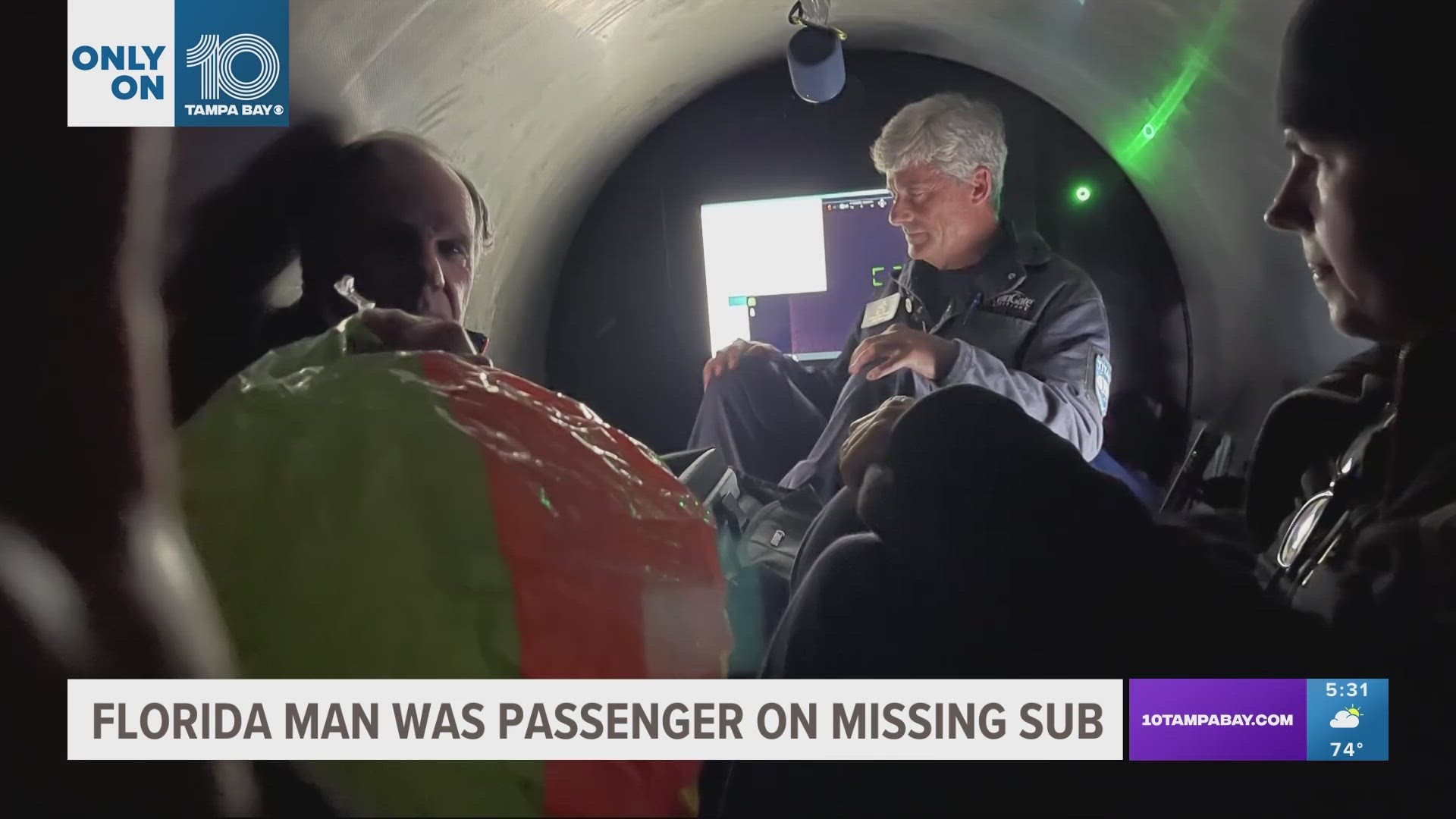CLEARWATER, Fla. — It’s a risk that’s pushing the limits of where humans can go.
That’s how Aaron Newman describes his own dive aboard OceanGate’s Titan submersible in 2021 – the same one that disappeared June 18 on a similar expedition to the Titanic wreckage.
“You do plenty of training, they talk about the how the sub is built, what are the safety protocols, you know, if something happens what would you do,” Newman told 10 Tampa Bay.
“This is not a Disney ride.”
And the people on board, Newman argues, are not your average tourists. Among the five missing are OceanGate CEO Stockton Rush and Hamish Harding, both of whom Newman described as extreme explorers with years of experience diving.
“Nobody in there was a regular person with a nine to five job,” Newman said. “These are people that even in the most dire situations would have been calm, would know how to think this through and do the best that they could."
Newman recalls the long, dark journey in the minivan-sized sub with four others, including Harding.
Dropping at a rate of about 1 meter each second, the ride to reach the wreckage sitting 4,000 meters (13,123 feet) below the ocean’s surface takes about four hours, he said.
“You're kind of sitting on the floor (of the sub) and you can't really stand up,” Newman said.
“It's staring out the window and watching the water fly by for hours – maybe taking a nap or listening to music – until you get to the bottom and it's almost like you're landing on the moon.”
In the first piece of good news since the search began, a Canadian aircraft detected underwater noises Wednesday, though the vessel has not been found.
While Newman says he’s hoping for the “Hollywood movie ending,” he knows the extreme depth is part of what makes the search so difficult.
“This is the challenge of being on the leading edge of this, rescue efforts become very tricky,” he said.
But Newman couldn’t say for certain that he wouldn’t dive again someday.
“Until this is resolved, I don't think I'm processing that, but we can't just sit here and do nothing because we're afraid of pushing the limits,” he said.
“We know more about the surface of the moon than the bottom of the ocean and we're investing a lot of money into space exploration when we put very little money into searching the bottom of our own oceans of exploring the earth we already have.”
The Associated Press contributed to this report.

